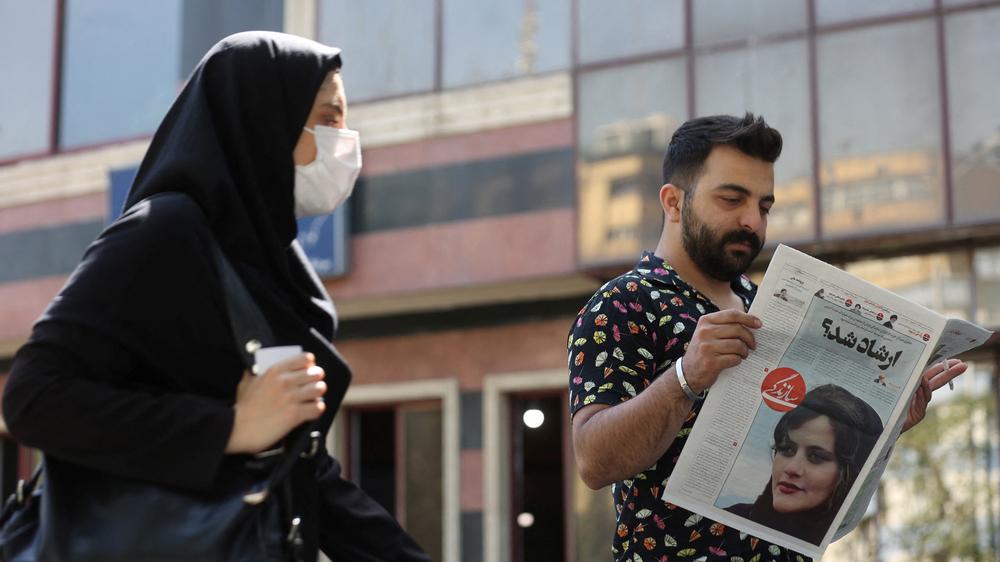According to media reports, the Attorney General of Iran announced the dissolution of the Vice Police. Meanwhile, President Raisi is said to have convened a crisis summit.
According to Iran ‘s Attorney General, the Morality Police, which was previously responsible for, among other things, observing women’s dress codes, has been disbanded. “The vice squad has been disbanded, but the judiciary will continue to deal with this societal challenge,” the daily Shargh quoted Attorney General Mohammed Jafar Montaseri as saying.
“The vice squad has nothing to do with the judiciary and has been shut down by those who set it up in the past,” Montaseri said. There was no more information about the background and implementation of the resolution.
According to information from the Isna news agency, President Ebrahim Raissi also met with several ministers for a crisis summit. The latest developments in the country are on the agenda of the non-public meeting in Tehran’s parliament. No details are known as of what exactly was discussed at the meeting. In the run-up there was speculation that it could be about the demands of the demonstrators. These include the revision of the Iranian constitution, the lifting of the headscarf requirement and new elections.
Critics of the Iranian regime have not yet described the alleged dissolution of the vice squad as a clear victory for the ongoing protest movement. The problem is not the moral police, but the lifting of the headscarf requirement, wrote an Iranian activist on Twitter. “Women must be able to go everywhere without a headscarf,” he demanded. And this is “only the first step”.
According to other observers, the abolition of the moral police does not end the headscarf requirement, but it is a partial success.
Morality police as a trigger for the protests
The vice squad was the trigger for the protests that have been going on across the country for more than two months: they arrested 22-year-old Mahsa Amini in mid-September. A few strands of hair are said to have peeked out from under her headscarf. Amini died a few days later in the custody of the vice squad. Since then , people have been protesting against the Islamic regime and its laws and regulations.
As a result, many women are increasingly ignoring the compulsory headscarf and Islamic dress codes. According to Islamic law in Iran , women are required to wear a headscarf and a long, loose coat to cover their hair and body contours in public. This law has been part of the socio-political doctrine of the Islamic system for more than 40 years in order, as it is said, to “save the country and people from Western cultural invasion”.
According to the Attorney General, the Iranian parliament and judiciary have now announced that they will review the headscarf law. He announced results in “a week or two” – but did not comment on what could be changed about the law.

